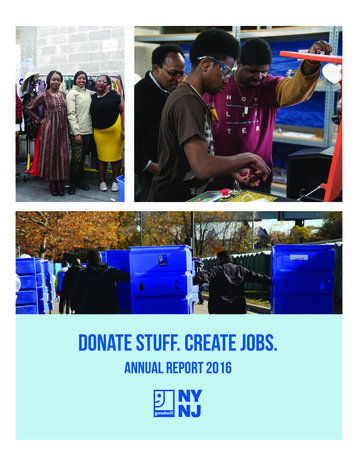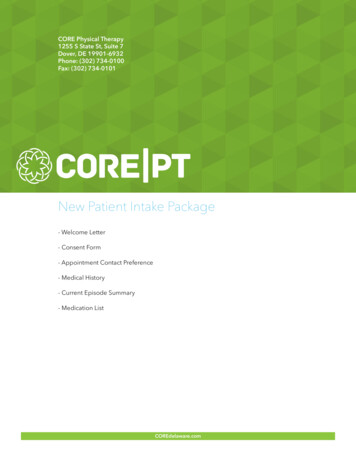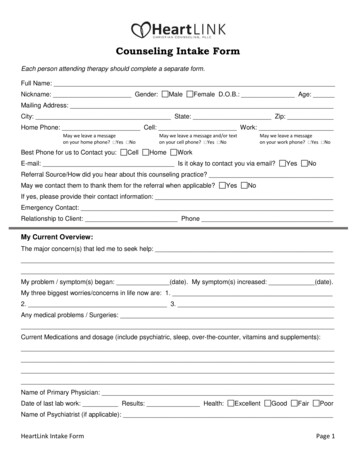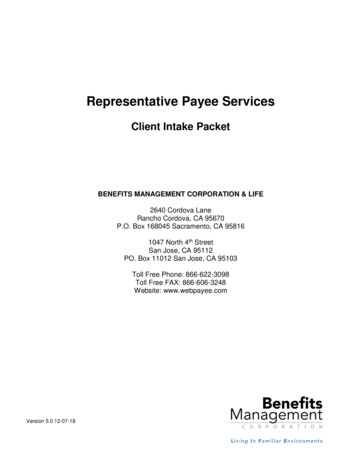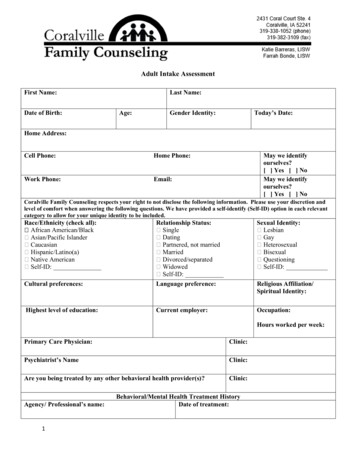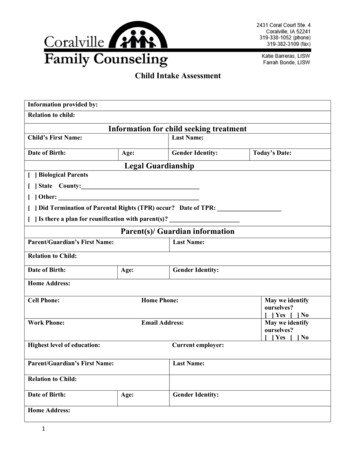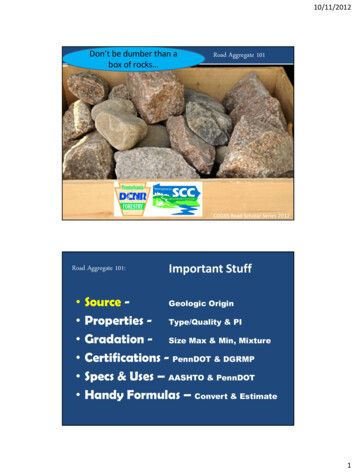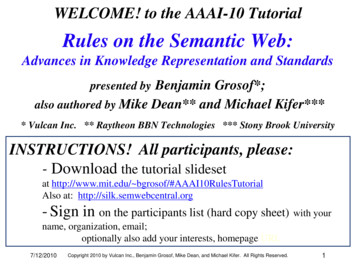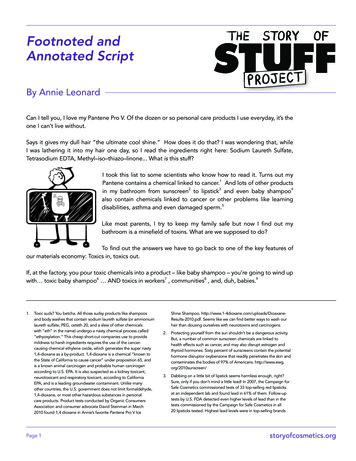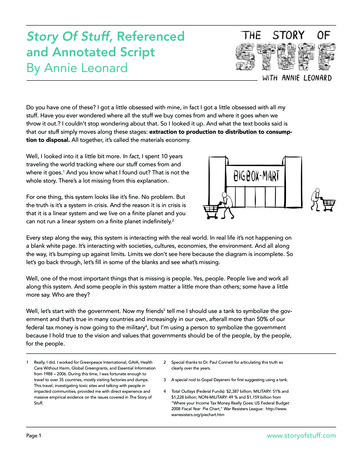
Transcription
The Write Stuff:Intake Notes, ProgressNotes, and Group NotesOctober 21, 2016
Agenda Session I: Intake Notes and Progress Notes– Review intake notes– Progress notes– Progress note practice activities Session II: Progress Notes and Group Notes– Additional practice with progress notes– Progress note challenge!– Group progress notes
Intake Note Intake sets the stage for all futuredocumentation.Almost everything you need to write in an intakenote is already completed in eCOMPAS duringthe assessment.Include information to make it all flow togetheras a narrative.
Intake Notes: What goes in? GenTab: Where they heard about the FRC– Initial reason for coming in HistoryTab:– Parent: history of mental illnessand/or substance abuse– Youth: MH diagnosis, History of Sub. Ab,number of times youth (Psych ER, arrest,suspension, etc.)
Intake Notes: What goes in? Goals:– Strengths– Needs– Goal, action plans, and date of anticipatedcompletion Assessment:– FES score and notable outcomes (positive androom for growth)
Progress Notes Providesan opportunity for family/youthand advocate to evaluate how things aregoing on a frequent and regular basis. Documents the continued medicalnecessity of the services being provided. Summarizes the period of time reviewed. Can be considered a “mini” plan review.
Tips for a Successful Progress Note Review the parent/youth’s goals &action plans before the meeting orhave copies for you to reviewtogetherThorough, yet conciseWritten soon after interaction with parent/youthto ensure accuracyCan be understood by and appropriate for anyreader (coworker, family/youth, and auditor)
SOAPD Strengths observed Objective account of the interaction Assessment of the situation/individual Plan (progress toward specific goal) Data or new information gathered
What questions can we askto get the information weneed to write a ProgressNote?
Asking the Right Questions1. Ron Goal:Within the next month, Ron will improve his study skillsby spending 60 minutes studying outside of class eachweek, as evidenced by self-report to Youth Advocate. Action Plans:1) Ron will stay after school with his social studies teacher for 30minutes every Tuesday for the next month, in order to buildstudy time into his school day and to create accountability witha supportive teacher.2) For the next month, Ron will attend weekly Youth Group for 90minutes, in order to learn effective coping skills for test anxiety.
SOAPD Possible QuestionsStrengths observed Review strengths you identified during theintake. Are you noticing any of that during yourmeeting?In the meeting with your parent/youth are youobserving any new strengths?“I’m listening to what you are saying and it’sclear that you are/have (strengthobserved). It seems to be helping you inachieving (goal or action plan).”
SOAPD Possible QuestionsObjective account of the interaction Arethere specific emotions beingexpressed, if so, how do you know that it’shappening (smiling, crying, raised voice,etc.)? Why is this important? What does the youth/parent say that isparticularly useful to quote in their note?
SOAPD Possible QuestionsAssessment of the situation/individual “How have the classes/groups (or other action plans)been going for you?”“Any successes or challenges?”“Is there anything that the FRC or you can do to helpresolve these barriers/challenges?”“Do you think that your action plans are helping you toachieve your goal(s)?”“Is there a reason why you didn’t attend your lastgroup/class?”“Is this goal still important to you?”“Are there any changes that we need to make to yourgoals or action plans?”
SOAPD Possible QuestionsPlan (progress toward specific goal) “What have you done since our last session?”“What do you find helpful about yourclass/group?” OR “What have you gained so farby participating in the class/group?”“Is there anything happening that is helping youmake progress on your goals or action plans?”
SOAPD Possible QuestionsData or new information gathered “Are there any major things that have happenedsince the last time that we met?”– Does this impact their goals and action plans?– How does this impact their goals and action plans?– Does this mean that the goals and action plans mayneed to change? Last time we met, you were struggling withor were not findinghelpful. Has anything changed?Did you complete since the last timethat we met?
IngridGoal:In the next 2 months, Ingrid will apply learned copingstrategies to demonstrate appropriate behavior (e.g.,speaking calmly; refraining from physicaloutbursts/aggression) with her son at least 3 times perweek, as evidenced by self-report to Family Advocate.Action Plans:1) Ingrid will attend weekly, 90-minute angermanagement group for the next 8 weeks in order tolearn conflict resolution and positive coping strategies tomanage stressful situations which arise with her son.2) For the next 2 months, Ingrid will attend weekly, 60minute Parent Support Group in order to receive supportand feedback from other parents of children with specialneeds.
Progress Note ElementsIncludes clear link to goals andaction plans.Describes progress made and/orlack of progress in achieving actionplans and/or goals.Includes a summary/discussion ofmeeting, recent services andinterventions provided since the lastnote.Identification of any necessarychanges to the goals/action plans.Documentation of any significantlife events (successes and/orbarriers).Addresses any outstanding issuesfrom previous progress note.Strengths observed.Date of service, time spent, andlocationProgress Note is signed and datedFullyPartiallyAbsentNotes
Red Flags Notes that do not mention:–––– GoalsAction PlansSuccessesBarriersNotes that do not indicate:– Progress– If no progress – the reasons for lack of progress– Plan to encourage progress Notes that are almost identical to previousnote(s)
Some Requirements to Consider Foreach encounter, a progress note mustbe completed. The duration of the encounter must bedocumented. Communications with outsideproviders/resources/referral should also bedocumented.
How to fix an Incomplete Note First,use your progress note grid toidentify areas that are missing. Review the note for appropriate language. If someone (youth, parent, co-worker, orauditor) read this, would they understandwhat the family member is doing withyour FRC?
Debra’s Goal: Improve communication with herson by increasing the number of positiveconversations over the next two months. Debrawill use a journal to log their conversations totrack her efforts.– Action Step 1: Debra will participate in the parentingclass to learn about age and stage, self-care, andcommunication. The class meets for 12 weeks, once aweek.– Action Step 2: Debra will attend the parent supportgroup for the next three months to find support andunderstanding.
Incomplete Note Example FAmet with Debra at the FRC office. Shesaid she wasn’t doing so good. Shecomplained about her landlord not fixingher hot water heater so we talked aboutways to get her to take action. She is alsovery stressed out because she got a lettersaying that her daughter’s SSI was goingto be reduced because she recently gotfood stamps. FA will look into the SSIissue for her and get back to her.
Revised Note w/ Required ElementsFA met with Debra at the FRC office for 30 minutes. InitiallyDebra spoke about issues with her housing situation; FAwas able to provide related resources. Debra continued touse her log book to review conversations with her son.She hasn’t missed a parenting class, yet. Based on herjournal, she reported having two additional positiveconversations with her son each week since she startedservices at the FRC. There was one conversation duringthe week where her son completely shut down. Debrawas able to role play this during the meeting with FA.Debra identified two strategies through her parentingclass that can help her have more conversations with herson. Debra reported finding her meetings with FA to be“helpful” and that she has “learned a lot”. Debra willcontinue to use her journal, attend parenting classes, andmeet weekly with FA to review progress and role playchallenging conversations.
Lunch Break!
ChaseGoal:In 3 months, Chase will increase the likelihood ofsuccessfully returning to college, as evidenced bycompleting a comprehensive action plan for dealing withstressors and seeking supports in the universityenvironment.Action Plans:1) Chase will attend weekly 90-minute Youth Group for thenext 3 months, in order to improve his stress managementskills and to build competency in managing his symptoms.2) For the next 3 months, Chase will meet weekly with YouthAdvocate for 45 minutes, in order to receive assistancewith locating supported education resources, gain supportand encouragement around pursuing his goals, and createhis action plan.
Progress NoteChallenge!
Group Notes
Group Notes Groupnotes are used to documentparticipation in a group or class. Each participant will have a unique note. Group Notes include:Standardized Description of the Class orGroup Individualized description related toparticipant’s goal
Set Up for Success Havean agreed upon set of descriptionsfor each class and group. Facilitators should bring goals and actionsplans for each parent/youth expected toparticipate in either the class or the group. Group/Class Progress Note Cheat Sheet– If co-facilitating the group/class, one of thefacilitators should be assigned to complete thecheat sheet.
Group/Class Tracking Sheet Active participation: Spoke without being asked to and/orparticipated in activities Shared: Meaningfully shared something personal Paid attention: Was engaged but not activelyparticipating Inattentive: Was not engaged or was preoccupied Responded to direct questions: Only spoke when askedby a fellow participant or facilitator/teacher Supported others: Provided emotional support to anotherparticipant Withdrawn: Emotional version of inattentive Learned something new: This is something you want towrite in the notes section Shared new coping skills: This is something you want towrite in the notes section
Writing During a Class/Group?Won’t the youth/parents be uncomfortable with mewriting during the group/class?Maybe . It is important that you inform the group or class beforeit starts that you will be doing this. Head off concerns by explaining:– What you write remains confidential– It is helpful for the group (as a facilitator you can connect ideas,bring the conversation back to an important topic, etc.)– You want to make sure that meaningful progress is beingrecorded for their Advocate– This will not be used to share with child welfare agencies (orother mandating authorities) – it is for your internaldocumentation (and billing)– Their Advocate will see the comments
Any other concerns youthink may come up whenwriting during agroup/class?
How do I write a Group ProgressNote?art 1: Standardized description of your group orclass. Date, length of class/group, location, ifchildcare was provided, any snacks provided,and if metro cards were given. art 2: Relevant information related to theparticipants goals or action plans. 2 maybe 3sentences.
Standardized Part of a SupportGroup Notearent/youth attended the [name ofgroup/service] on [date of group]. Thegroup’s topic was [subservice/what isgenerally covered in the group]. Thegroup was offered at [location] for[duration of group]. Snacks were/were notprovided. Childcare was/wasn’t provided.Participants received a metro card.
Standardized Part of a Class Notearent/youth attended the [name of course]on [date of class]. This was [class numberand title of class]. Class numbercovers [FRC standardized description ofclass material] The group was offered at[location] for [duration of group]. Snackswere/were not provided. Childcarewas/wasn’t provided. Participants receiveda metro card.
Types of StandardizedDescriptionsExamples: NAMI Support Groupsand Basics
Linking Goals and Action PlansAdd a simplified version of theyouth/parent’s relevant goal(s).Best option: direct quote a statementmade by parent/youth related to theirgoal.When you don’t have a quote, describe atopic discussed that was relevant to theirsituation and if the youth/parent activelyparticipated, paid attention, sharedsomething personal, or supported others.
Send Us Your Standard Group andClass Descriptions!We would like to help you all come up withstandard language around your classes andgroups that can be regularly used when writinga group note.Please email Diana with your standarddescriptions of classes.We will put together a cheat sheet for you.If there is more than one description for a class,we will include all and let your FRC decide thebest description to use.youth@naminyc.org
Intake Notes, Progress Notes, and Group Notes October 21, 2016. AgendaFile Size: 780KB
